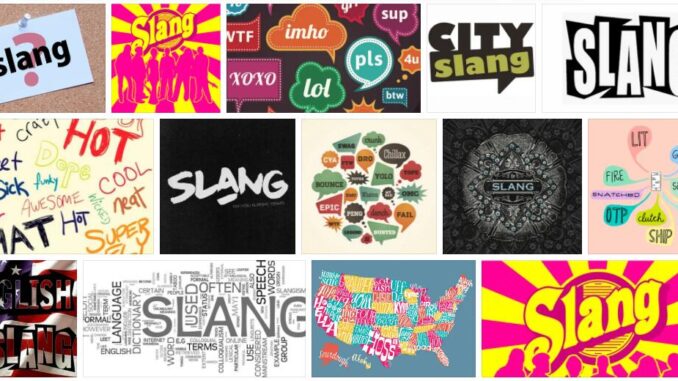
Slang is a French term, accepted by the Royal Spanish Academy (RAE), which refers to jargon: a particular type of language used by members of a group. The slang is shared by those who dedicate themselves to certain chores or tasks, sometimes with the intention of making it difficult to understand communications to people outside the group.
For example: “I did not understand exactly what the surgical intervention will be like since the surgeon used medical slang that was too specific for me”, “By working for years as a street vendor, I learned the street slang of the neighborhood”, “In Mexican slang you says chela to beer ”.
Slang is used by a group of individuals who have certain characteristics in common: it can be their trade, their place of origin, their hobbies or their social class, to name a few possibilities. Terms usually arise when there is no specific translation of a concept and, over the years, they can be incorporated into the general language.
Criminals often appeal to slang as encrypted language, although many of the terms later become in common use throughout society. An Argentine thief can point out: “When the jute fell, I grabbed the prickly pear, started to shoot, and lowered a cobani. ” The expression refers to the fact that, when the police (yuta) arrived at a place, the criminal took the revolver (prickly pear), began to shoot and killed an agent (cobani).
In journalistic slang, a reporter can comment to a colleague: “For the living, I prepared a rehash. ” In this case, he is mentioning that, for the broadcast that will be carried out live, he plans to refer back to a topic that has been previously discussed.
Taking into account the examples presented so far, we can clearly distinguish two uses of slang: protect certain information from inappropriate disclosure; streamline communication in a specialized professional field. In the first group we find cases that range from crime to the phenomenon that occurs in certain age groups, especially in adolescence, when human beings tend to access language that is difficult for adults to understand.
As long as the intention is not to harm anyone, using slang to prevent people outside our group from understanding our conversations does not seem to be wrong; in fact, if we are working on a project for a competition, for example, it is more than adequate to reduce the chances of plagiarism.
Within the professional world, slang appears inevitably, both during the initial training stage and during the different experiences in the workplace. This set of words and expressions that may come from a foreign language, or be deformations of local terms, often make no sense to people outside the industry.
In the world of computer programming, for example, ” source ” is used to refer to the source code, and it is usually pronounced surs, without any respect for the English phonetics of the original term. The verb ” elbow ” is also often used as a synonym for programming, typing or going to the computer, although the dictionary defines it as “hitting the elbows”.
For newcomers to a given category, slang can be overwhelming; in fact, this can be accentuated if veterans use it with the intention of marking territory. Anyway, if someone has a real passion for their profession, sooner or later they will learn the necessary terms to communicate with their peers and will leave behind the fears of the first day, when they felt that they would never be able to understand them.
